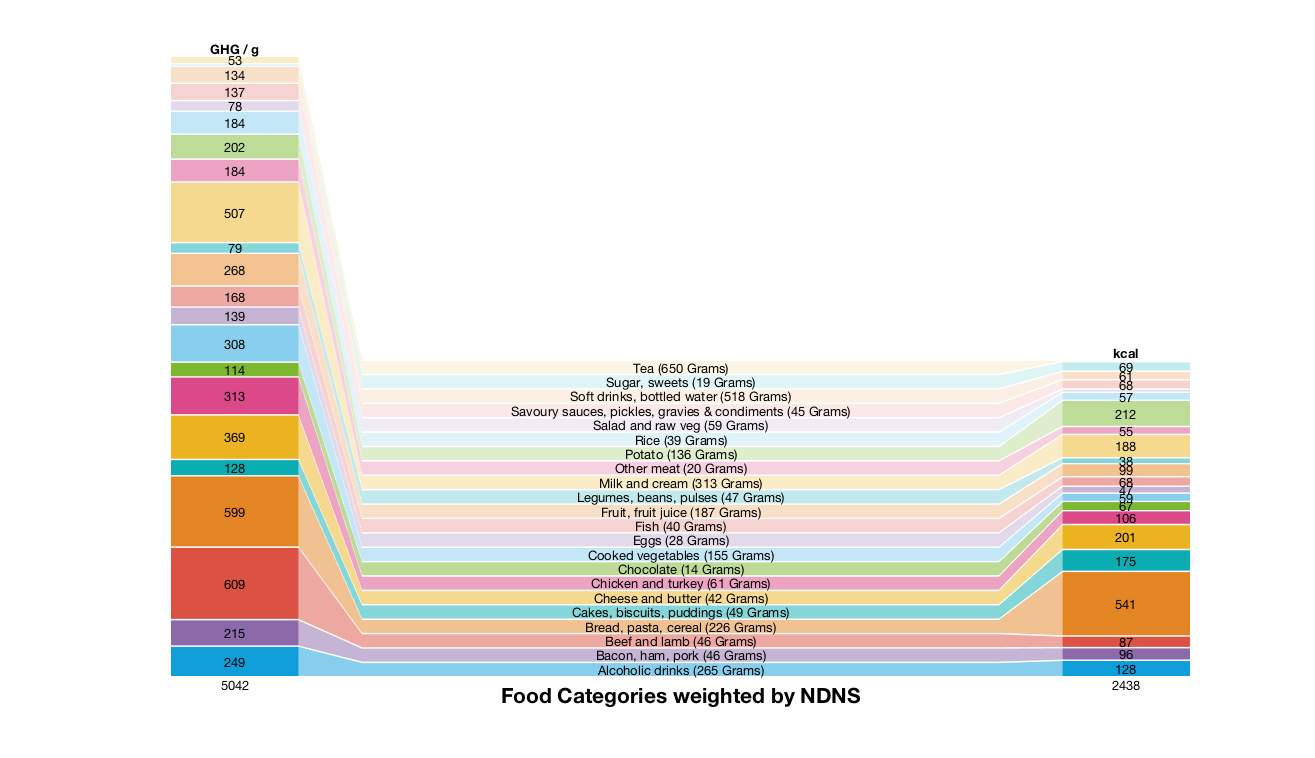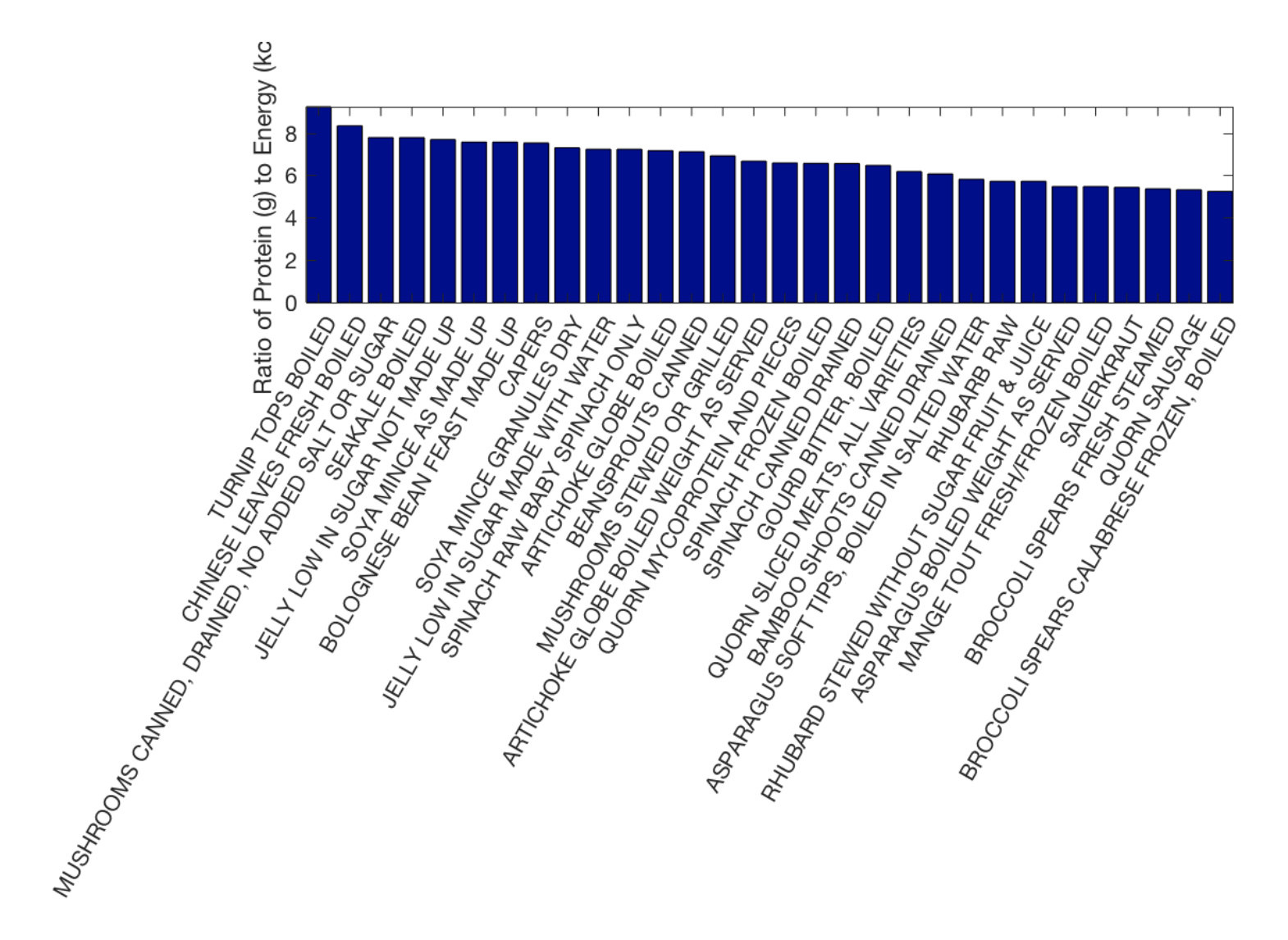In this blog post, Christian Reynolds (Knowledge Exchange Research Fellow at the University of Sheffield) discusses "Hacknights" for exploring diet and climate data, run by the Greenhouse Gas and Dietary Choices Open source Toolkit project. This blog post has been published in collaboration with the UK Data Service - read the corresponding post on the Data Impact Blog here.

Image: Pineapple Supply Co., MacBook and culinary fruits in flatlay, Unsplash, Unsplash Licence
Have you ever wondered how your food choices affect the environment? Fancy exploring data on nutrition and greenhouse gas emissions and coming up with new ideas for changing food choices? Come along to a Hacknight in Manchester, or other northern cities, play with the data and share your ideas.
Over the last decade we have gone from having relatively few studies on the environmental impacts of food to having meta reviews published for the most commonly consumed food products, comparing the global and country-specific studies. Likewise, we now have multiple food consumption datasets, that allow us to understand dietary patterns in detail across time periods.
Over the last few years, much effort from multiple research teams has gone into matching specific environmental impact and dietary datasets together. This means that – with the right data handling skills – we have the ability explore and visualise food, diet and sustainability issues quickly.
Yet not many people choose to explore and visualise food, diet and sustainability issues using the datasets available. This could be due to not having the data visualisation skills, not knowing the datasets exist, or possibly just not having the time to sit down and explore the data. We think that we have part of the solution to this problem: hacknights.
Hacknights are part networking and part applied problem solving events where computer literate tech experts engage and trade ideas with academics and other interested parties, playing with (or 'hacking') a series of data sets to create new insights, tools or methods of analysis. They usually happen on an evening or weekend, with participants splitting into groups to use the available data sets to solve a set challenge or problem given by the organisers.
We have found that hacknights strengthen and open up our food-sustainability research community, provide an opportunity for participants to learn something new, and also provide a space and a time for participants to make headway on problems they are interested in. In this particular instance it allows us to begin to visualise and explore food, diet and sustainability issues with a group of like minded and curious individuals.
Our Greenhouse Gas and Dietary Choices Open source Toolkit (GGDOT) Hacknights aim to bring together academic researchers from data science with food experts from nutrition, psychology and environmental impact assessment. We use the National Diet and Nutrition Survey (NDNS) combined with a harmonised greenhouse gas emissions (GHGE) data set from Neil Chalmers, Ruth Slater and Leone Craig (The Rowett Institute, University of Aberdeen). Before the night, participants are asked to download the NDNS, and on the night the datasets are combined and refined using our open access toolkit. In this toolkit you can then sort and visualise the data to explore many aspects of the relationships between food, diet and sustainability.
There are many things you can do at our hacknights: you could play with different foods to try to find a nutritious and tasty low carbon diet, work on improving the visualisation of this complex dataset, think of neat optimisation tools, work with nutrition and emissions experts to improve the content, and/or participate in the hacknight competition to win £100 of Amazon vouchers.
Some previous hacknights have shown us it is possible to compare a specific diet’s greenhouse gas emissions with the average diet reported by the NDNS. In the example below we visualise a comparison of a diet’s greenhouse gas emissions and calories.


Or you could also search the NDNS for foods with the highest ratios of nutrients e.g. protein to calorie ratio, but with less than 2 kg of CO2 eq. per kg.


The first GGDOT Hacknight took place on 12 June 2018 hosted by Liverpool John Moores University, to coincide with the N8 Agrifood Annual Conference. Over 30 people attended and got through at least 15 large pizzas and gave 6 presentations of the results of their code and ideas hacking. We also hacked on Friday 29 June hosted by the STFC Food Network+ Annual Meeting at the University of Sheffield.
One of the biggest benefits of the hacknights has been getting people to talk to each other in a constructive manner with the data at their fingertips to interrogate and play with. There is a great energy at the hacknights that just lends itself to further collaboration and exploration.
https://t.co/uY4JgubPQa is getting shape after our first successful #hacknight last Tuesday in Liverpool. Next #hacknight on June 29, this time in Sheffield. Details and registration https://t.co/WHRUe8lR3P pic.twitter.com/fHRb0mVyY7
— equisime (@equisime) June 14, 2018
First #GGDOT (Greenhouse Gasses and Dietary Choices Open Toolkit) hack night in Liverpool @LJMU went swimmingly. Looking forward to being @sheffielduni on 29th. @sarahbridle @sartorialfoodie @N8agrifood @STFC_Matters pic.twitter.com/BbkhlfLM9A
— Dr Dale Mellor (@drdalemellor) June 13, 2018
Great to see so many people at the GGDOT hacknight @N8agrifood @STFC_Matters@sarahbridle pic.twitter.com/CodkxsMD1s
— Christian Reynolds (@sartorialfoodie) June 12, 2018
We have upcoming GGDOT hacknights in September (Manchester), October, and November 2018. It would be great to see you there!
Please sign up here on Eventbrite to participate in the Manchester hacknight (Thu 20 September 2018 18:00 – 21:00).
The GGDOT toolkit can also be adapted to other diet and GHGE datasets. We would love to support hacknights globally, so if you are interested, please do get in touch. Future results from the hacknights will be posted on the FCRN blog and at the UK Data Impact Blog.
GGDOT Hacknights have been funded by N8 Agrifood.
Add your comments, questions or suggestions to the conversation by sending a message to the FCRN's Google Group, which you can join here.






Post a new comment »